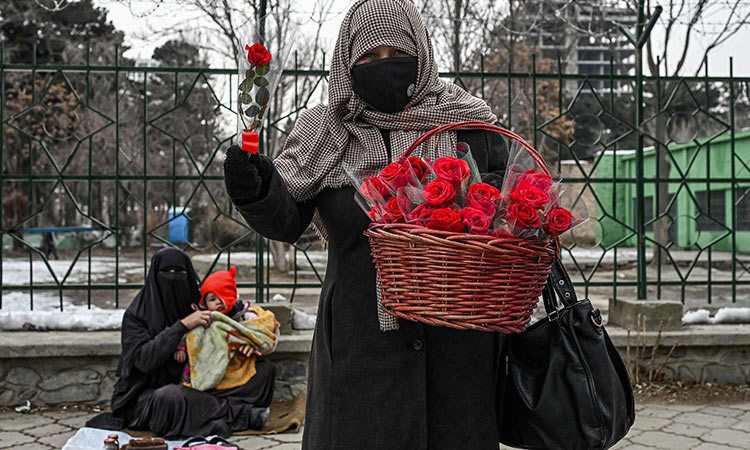Taliban trying to 'erase' women from public life: UN experts

Afghan women march as they chant slogans and hold banners during a women's rights protest in Kabul. File/AFP
Gulf Today Report
A group of UN human rights experts have warned against the Taliban's attempts to "steadily erase women and girls from public life", the media reported.
The experts on Monday said that large-scale and systematic gender-based discrimination and violence against women and girls has been ongoing since the fall of the country to the Taliban last August, reports TOLO News.
"Taken together, these policies constitute a collective punishment of women and girls, grounded on gender-based bias and harmful practices," the experts said.
"Today, we are witnessing the attempt to steadily erase women and girls from public life in Afghanistan including in institutions and mechanisms that had been previously set up to assist and protect those women and girls who are most at risk."
According to the experts, women and girls in Afghanistan are being pushed out of public life.
"We are concerned about the continuous and systematic efforts to exclude women from the social, economic, and political spheres across the country."

The human rights experts also raised concerns over the risk of exploitation of women and girls including trafficking for the purposes of child and forced marriage, sexual exploitation and forced labour, according to IANS.
According to the experts, barring women from returning to their jobs, requiring a male relative to accompany them in public spaces, prohibiting women from using public transportations on their own, and denying secondary and tertiary education for girls are the policies being implemented for the exclusion of women.
"In addition to severely limiting their freedom of movement, expression and association, and their participation in public and political affairs, these policies have also affected the ability of women to work and to make a living, pushing them further into poverty," the experts said.
According to the experts, the humanitarian crisis in the country has been more devastating for women, children, minorities and female-headed households.
The Taliban-led government however, denied that it has imposed any type of restrictions on women and said that women are continuing to work in government departments.
"No restrictions are imposed on women. Women are working in government departments. The plan to include women in the formation of the new government is under discussion," TOLO News quoted Taliban deputy spokesman Ahmadullah Wasiq as saying on Monday.











